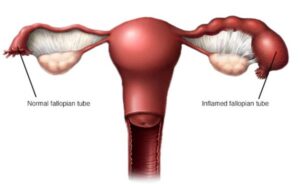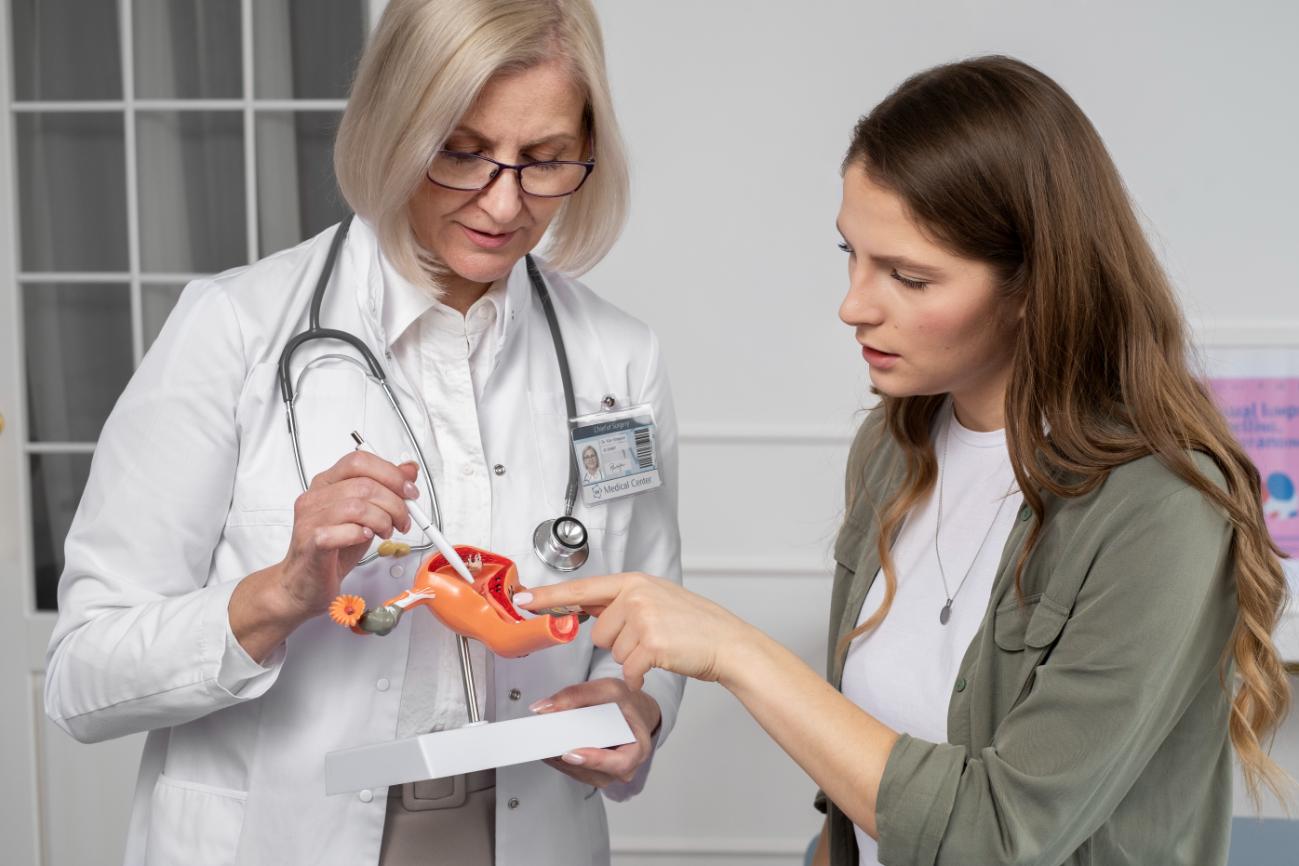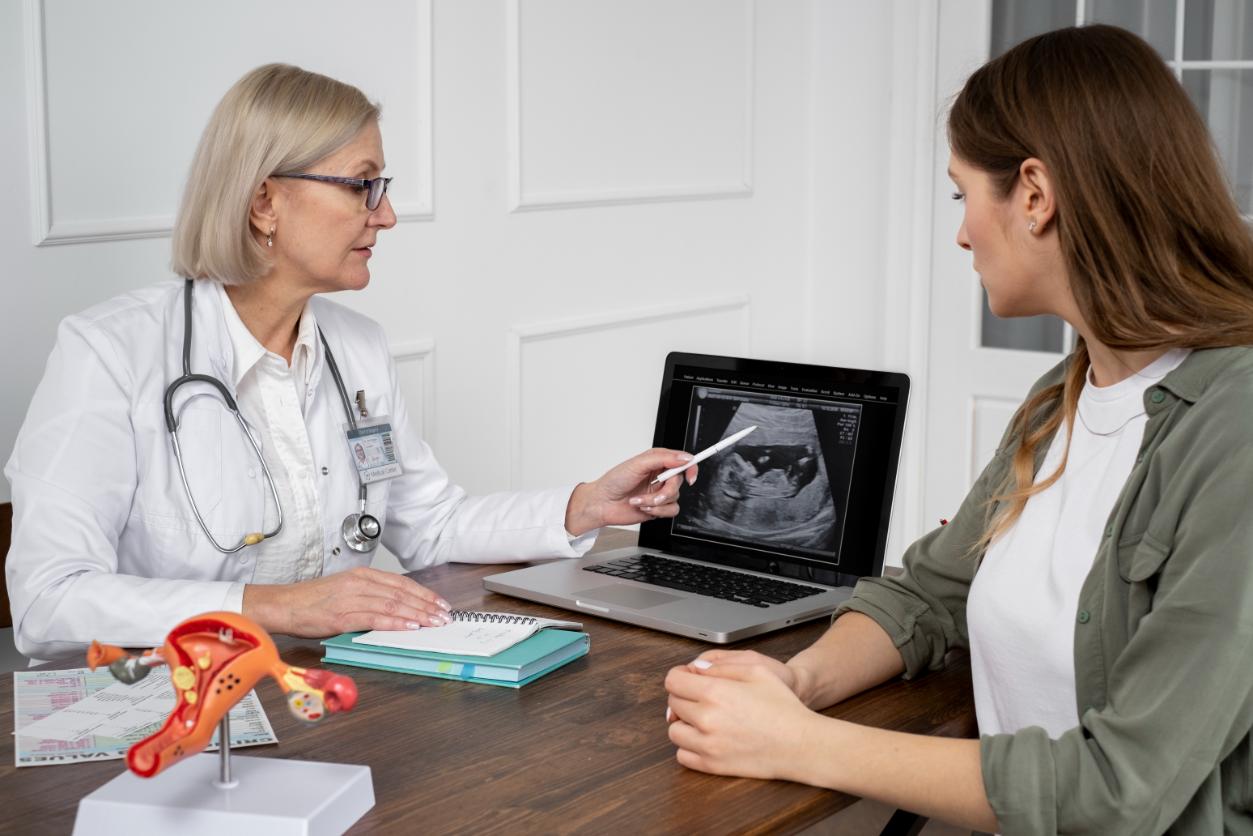
Pelvic inflammatory disease is a kind of infection of the female reproductive organs. Pelvis is situated in the lower abdomen and consists of the fallopian tubes, ovaries, cervix and the uterus. The disease occurs as a result of spreading of the sexually transmitted bacteria from the vagina to the uterus, ovaries and fallopian tubes. Ironically, pelvic inflammatory disease does not lead to any significant signs or symptoms, so it would be difficult for you to identify that you are suffering from this condition, as a result timely diagnosis of the condition and the subsequent treatment also get delayed. The condition is generally diagnosed when there is a delay in getting pregnant or if there is acute pelvic pain. It is estimated that about 5% of women all over the world suffer from pelvic inflammatory disease.
Causes of pelvic inflammatory disease:
Though there are a host of bacteria that can cause pelvic inflammatory disease, gonorrhea or Chlamydia infections are the most common. These bacteria usually get into your body during unprotected sex. If the normal barrier created by your cervix is disturbed, you run the risk of getting these bacteria into your reproductive system. Various factors might lead to pelvic inflammatory disease; some of them are the following.
- Being a sexually active woman younger than 25 years old
- Having multiple sexual partners
- Being in sexual relationship with a person who has multiple sex partner
- Unprotected sex
- Douching frequently which might affect the balance of good-harmful bacteria in the vagina
- Being prone to pelvic inflammatory disease and sexually transmitted infection
However, it should be understood that, contrary to popular belief, having an intrauterine system does not increase the risk of pelvic inflammatory disease. If at all there is a risk, it is only in the first few weeks.
Telltale signs of pelvic inflammatory disease:
- Pain in your lower abdomen and pelvis
- Pain in the upper abdomen
- Tiredness
- Increased or foul-smelling vaginal discharge
- Heavy vaginal discharge with an unpleasant odor
- Abnormal uterine bleeding, especially during or after intercourse, or between menstrual cycles
- Pain or bleeding during intercourse
- Fever, sometimes with chills
- Painful or difficult urination
Signs and symptoms of the pelvic inflammatory disease are either mild or no signs at all. However, when the disease worsens some women may have severe pain and symptoms such as sharp pain in the abdomen, vomiting, fainting and high fever. These signs are generally demonstrated during a pelvic examination. The person suffering from pelvic inflammatory disease can also have trouble in bowel motion. If you suffer from any of the above-mentioned symptoms, visit your doctor right away as pelvic inflammatory disease can lead to serious health issues if not treated timely. For instance, you might have trouble getting pregnant or have severe pain in your pelvic area without any signs of abatement. Some of the signs and symptoms of the disease can also happen because of some other medical conditions like appendicitis, ectopic pregnancy or sexually transmitted infection (STI), but you need medical help straight away for these as well. Moreover, if a sexually transmitted infection is not treated timely, it can worsen into a pelvic inflammatory disease.
Diagnosing pelvic inflammatory disease:
On hearing your narration about the symptoms and assessing your past medical and sexual history, your doctor may resort to do a pelvic examination. She will look for signs of tenderness in your cervix, uterus or surrounding organs like ovaries and fallopian tubes. She will also look for signs of any fluid in the vagina or cervix that is suspicious. Your doctor may also take a fluid sample under microscope and send cultures for gonorrhea and Chlamydia to the lab. She might also suggest you to do blood test to look out for sexually transmitted infection, urine tests to check your urine for signs of blood, cancer and ultrasound to get a clear picture of your internal organs.
If the exam or tests throw up something highly suspicious for pelvic inflammatory disease, your doctor will talk to you about the appropriate treatment to adhere to. Apprising your sexual partner of the diagnosis is also a good idea so that he can get tested as well for any infections.
Treatment for pelvic inflammatory disease:
First-line of treatment for the disease is prescribing antibiotics as at that point in time your doctor may not know the kind of bacteria that led to this infection. You may be put on two different kinds of antibiotics to treat a variety of bacteria. Within a couple of weeks of starting treatment, you may find symptom relief. However, make sure you complete the whole course of medication, even if you are feeling better. Stopping your medication half way through may cause a relapse of the disease.
In some cases pelvic inflammatory disease may need surgery. But it is very rare and only considered if you have an abscess in your pelvis that is prone to rupture or if the infection does not respond to treatment.
For enquiries related to infertility and Gynaec issues, send a message to www.KJKHospital.com/contact





